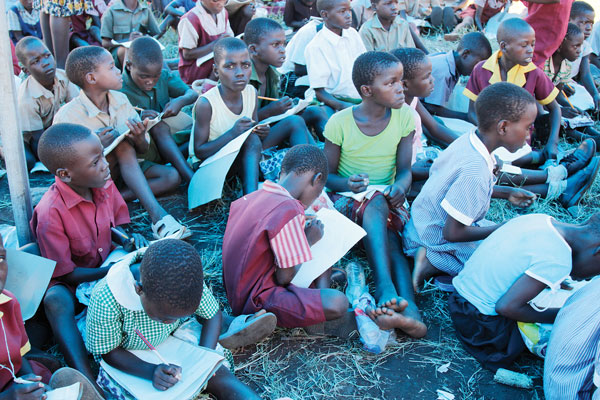
In Sub-Saharan Africa, more than 9 million children drop out of primary school every year according to th eBritish Broadcasting Corporation. The Internet is a resourceful tool that can improve and transform the education sector and contribute to economic transformation of African nations, a new study by the Internet Society indicates.
Kudzai Goremusandu

Dubbed the Internet for Education in Africa, the study says a blended learning environment that leverages Internet can potentially help connect education to work, improve the skills that allow youth to access employment, empower lifelong learners, and importantly, support women, girls and people living with disabilities to participate in learning without space, time and other cultural and social barriers.
While education struggles to cope with the digital transformation, Internet connectivity has grown exponentially. Africa is today the fastest-growing and second largest mobile phone market in the world. While in some countries, including Botswana, Gabon and Namibia, there are more mobile subscriptions than inhabitants, Africa still has the lowest mobile penetration of any market. There is plenty more growth to come. Over 620 million mobile subscriptions mean that, for the first time in the history of the continent, its people are connected.
With this increasing statistics, digital learning is a real possibility. More than a quarter of the African population (334 million) has access to Internet, the majority of whom are young people who are to use it for education purposes. According to the African Development Bank, Africa is the continent with the world’s second fastest growing economy. Africa is at risk of losing a generation of 21st century workers and job creators. If current trends continue, Africa will be home to one billion young people by 2050, but one-third of them will not be able to complete basic secondary education. Digital education will be important in empowering young people in Africa.
Digital education is a system of teaching that emphasises the use of computers and Internet to impart knowledge. This year the world marks a significant milestone: 50% global Internet penetration. Though Internet access has become a daily expectation for many, it’s hardly available.
Today, over four billion people some 56% of the world are still not using the Internet. The majority of this offline population are women. Most live in less developed countries and other developing countries. One of the key obstacles countries face in the race to expand access is affordability the vast majority of those without Internet access today are offline simply because they cannot afford a basic connection.
The arrival of Seacom marine fibre optic cable on the Kenyan coast in 2009 excited Internet users — who were promised reliable and faster service. In Kenya, 1GB of mobile broadband is said to cost an average of 9,72% of the average monthly incomes — making Kenya’s Internet more expensive than other comparative countries such as Zimbabwe, Tanzania and Ghana. Only five countries in Africa qualify to be termed as having affordable access. They are Sudan, Mauritius, Egypt, Tunisia and Morocco. Countries that were leading in this year’s index including Cambodia, Mexico, Peru and Benin have implemented several reforms that the A4AI recommends to be emulated by other regions.
- Chamisa under fire over US$120K donation
- Mavhunga puts DeMbare into Chibuku quarterfinals
- Pension funds bet on Cabora Bassa oilfields
- Councils defy govt fire tender directive
Keep Reading
The traditional education system was termed outdated and out of touch with the 21st century challenges. All the activities are carried out manually, teachers have to maintain all the chapter contents to be taught in the class on paper, attendance records are maintained in register books, keeping track of teaching progress is also a cumbersome task.
As Internet grows, educational challenges are advancing and normally the two are not supposed to be intersecting. What Rwanda is doing is a step in the right direction and will ensure that the education system produces global citizens capable of working anywhere in the world. Once the programme becomes fully operational, it will empower students with digital tools, practices, and technologies so they can actively participate in their own learning at anytime and anywhere.
There’s little doubt that our vibrant continent is making great strides towards a bright future, with our economy expected to grow by 3.4% in 2017 and 4.3% in 2018, according to research in the African Outlook Report. Children across Africa’s rural communities are being left behind and with more than 70% of the continent’s population living in rural areas, this is a major problem.
The same report shows that at least half the population resides more than 25km from the nearest fibre connection. It’s clear that, while we may be celebrating the growth of connectivity in cities, last-mile connectivity is still a major stumbling block.
It’s true that we as Africans still have a great deal of work to do if we want to see our incredible continent continue on its path of transformation, but the key to our success lies in the power of innovation.
Kudzai is a strategic and innovate business consultant .He offers consultancy services to local and international investors. Contact: [email protected]. He currently works with Coover Bottlers, a new beverage company based in Harare











